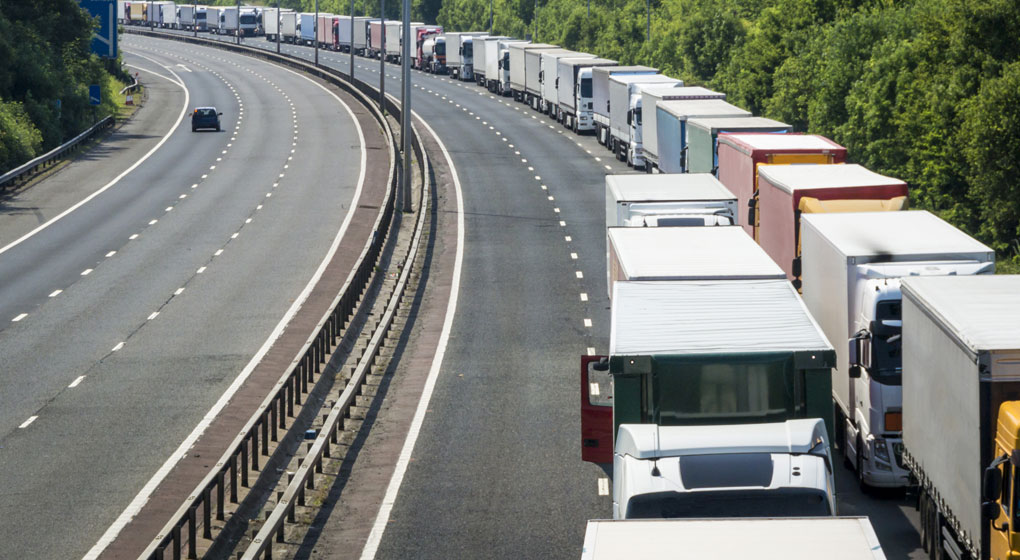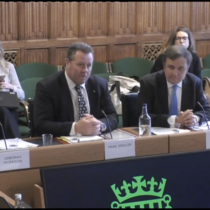Stark reality of increased trade friction is emerging
I have made the point on numerous occasions that the way we currently trade with the EU would change dramatically as we contemplated the no-deal cliff edges last year.
In reality, those challenges were never just going to be limited to no-deal and the publication of the Government’s Border Operating Model, “The Border with the European Union: Importing and Exporting Goods” makes it even clearer, if it wasn’t already that the full weight of operating outside the frictionless borders of the EU will weigh heavily on business for January 2021, regardless of the outcome of the current negotiations.
The 206 page document outlines the processes for moving goods between GB and the EU from 1 January 2021 and the phasing in of processes to be introduced in April 2021 include SPS checks and July 2021, from when full controls will be in place. The procedures are complex and onerous, especially for businesses that have never had to carry them out. Even HMRC concedes that these will lead to an extra 215 million customs declaration forms being completed on imports and exports.
HMRC also estimate that the declarations will cost some £30 on average to complete which means the annual cost of these requirements to business is well in excess of £6 billion. Not all of this will fall on the animal product trade of course but the cost per transaction will be even higher for our sectors as export health certification, prenotification and inspection procedures need to be added to the mix.
It’s not all doom and gloom though. We do now at least have some greater clarity on what businesses need to do to prepare with the processes mapped out and more step-by-step guidance for operators. This said the incompatibility of an operating model that requires detailed advanced information on consignments with any flexible trade in fresh food products with relatively short lead times for deliveries is of concern.
I doubt we will ever be able to match the current frictionless trade we enjoy but we can certainly improve things
The problem stems from a fundamental mismatch between processes that work perfectly well for large volume consignments of frozen or shelf stable products delivered to ports in containers with those required for trucks working to delivery windows measured in hours and minutes and where last minute changes and adjustments are part of the service. Undermining this takes away a key competitive advantage we have compared with other non-EU suppliers and we need to do everything possible to protect this.
The application for and issuing of export health certificates is a good example of this. Great progress has been made by the Animal and Plant Health Agency (APHA) in shortening the timeline and flexibility around the application for and issuing of export health certificates (EHCs) with the development of the EHC online system which was rolled out from February this year.
However, at this stage the key improvements have been around the application process rather than the issuing of the certificates themselves. It’s now possible to apply for many EHC’s online (some 100 across a range of live animals and animal products) but we are still reliant on the postal system or couriers to deliver most of these as they have to be printed on Crown Gold, watermarked paper.
When we consider that, conservatively, the demand for EHC’s may increase by 500% from the end of the Transition Period the pressure on a system which is still reliant on moving physical paper documents from APHA to the exporting premises will be immense. It’s crucial that the work is brought forward and completed by the end of the year to at least overcome this bottleneck to exports. At the very least we should ensure that all EHC’s for EU exports are delivered on plain paper and printed by the OV at the point of dispatch and a move to full electronic certification for EU trade achieved as soon as possible.
Dealing with the new world of complex import and export procedures for all of our EU trade will be challenging. It can be made to work…just. I doubt we will ever be able to match the current frictionless trade we enjoy but we can certainly improve things. This will require all stages of the process more agile and rapid and this can only be achieved if we take full advantage of digital systems to make the mechanism of the movements more assured.







